Yeppoon

Aussie Gold Natural Spring Water in Yeppoon has QUASI as our independent and internationally recognised third-party auditor for approved bottled water plants. The purpose of QUASI audits is to ensure that Aussie Gold’s bottling plant quality standards are in compliance with the requirements of the HACCP (Hazards Analysis & Critical Control Point) standard.
Aussie Gold submits the full records of our bottled water source and product water test results to the appointed QUASI auditor. Additionally, Aussie Gold fully documents and verifies all procedures and processes. In some instances, Aussie Gold’s HACCP standards are more stringent than the FSANZ regulations currently in place for bottled water.
We deliver our quality products throughout Central Queensland, including Mackay, Moranbah, Blackwater, Gladstone, the Isaac Region, Emerald, Biloela, Sarina, Moura, Gracemere, Tieri, Capella, Clermont, Middlemount, and Agnes Water.
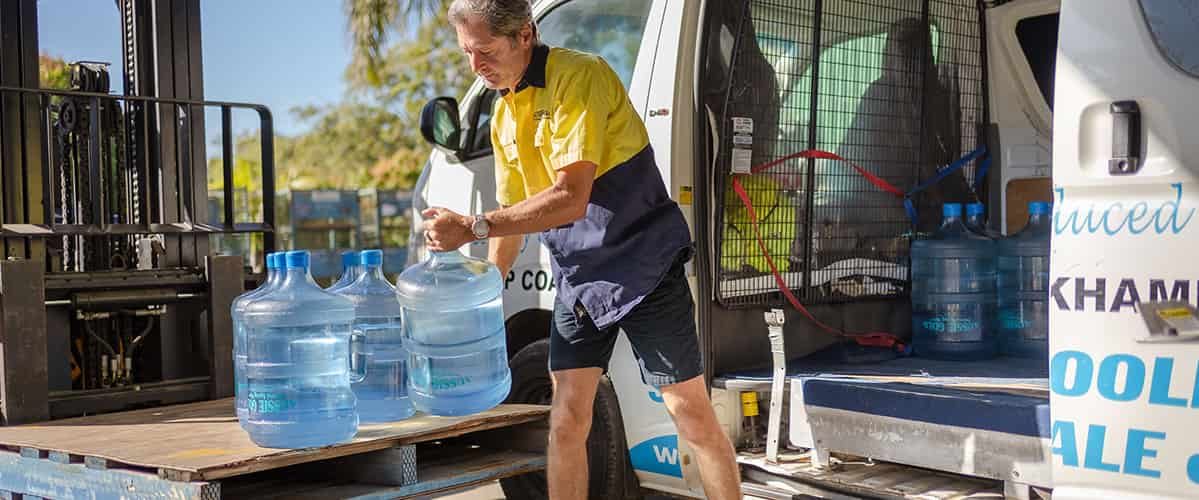
Our bottled water treatment process is simple yet effective:
Storage settlement
Four (4) Stage Filtration
Ultra-Violet Light Purification
The water is filtered but its natural purity means no other treatment is required. There is absolutely nothing added to Aussie Gold Natural Spring Water, and we guarantee a natural sweet taste from our bottled water.
Regular testing by Government and independent N.A.T.A approved laboratories consistently report that Aussie Gold’s bottled water is one of the purest natural spring waters in the world. Aussie Gold Spring Water easily meets the requirements of the National Health and Medical Research Council of Australia.
Typical Analysis
| Bicarbonate | 47mg/L |
| Sodium | 26mg/L |
| Chloride | 31mg/L |
| Calcium | 11mg/L |
| Magnesium | 3mg/L |
| Potassium | 1mg/L |
| PH | 6.9mg/L |
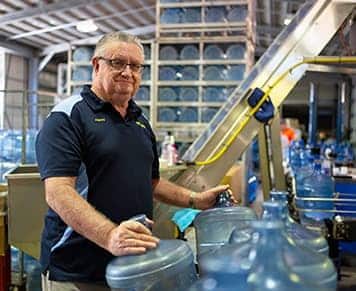
Water is essential to the human body. While the body can last up to six weeks without food, it can only last a few days without water. Water serves many functions in the human body – including blood circulation, regulating body temperature, protecting and cushioning vital organs, removing waste and converting food into energy. It is critical to ensure that you drink enough water so your body can function properly.
YES. Bottled water is different in many ways. A major difference is the source. Most bottled water, such as spring water, comes from protected underground sources. However, most municipal tap water comes from surface water (dams, lakes, rivers) which is often subject to contamination and pollution.
Another difference is the method of distribution. Bottled water is produced under sanitary conditions in a food plant and packaged in clean, sealed containers. Tap water is distributed via many kilometres of often old, unsanitary piping systems – which can contain lead, pathogenic bacteria, and other impurities.
Finally, there’s TASTE! Bottled water does not contain chlorine (or its by-products, such as trihalomethanes), aluminium, lead, or other chemicals, unpleasant tastes, and odours associated with tap water. Bottled water tastes crisp, clean and refreshing.
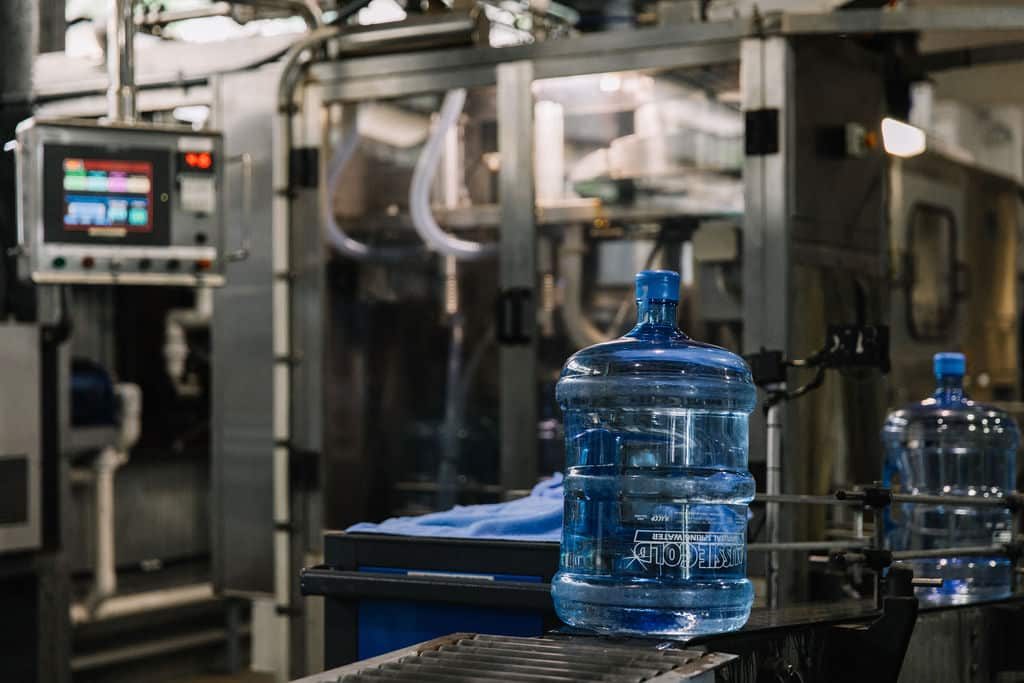
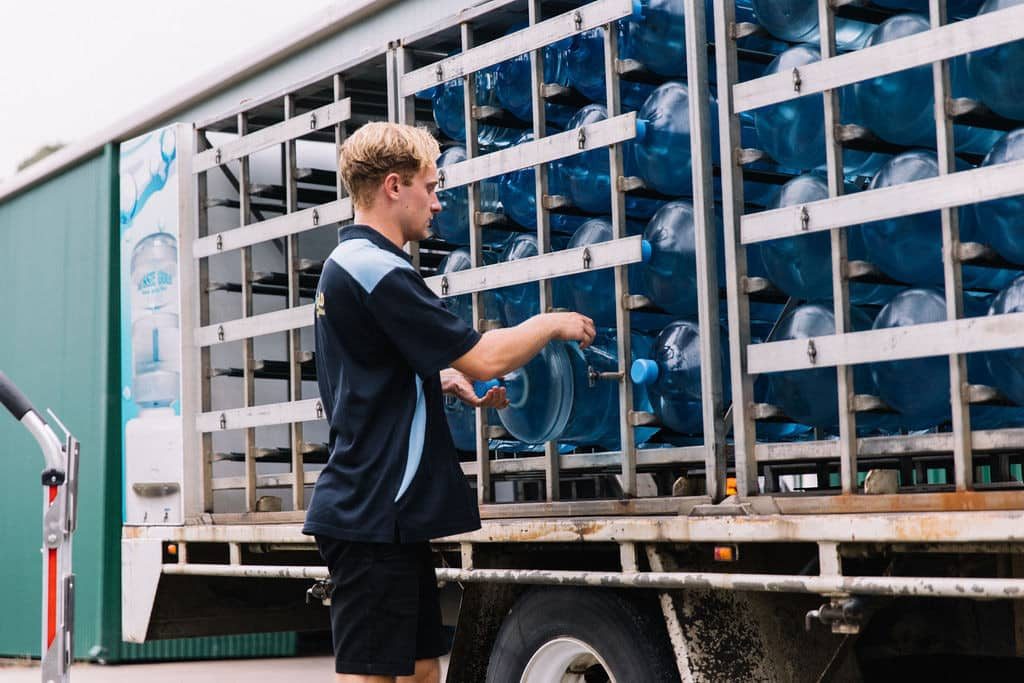
Hydration is the replacement of body fluids lost through sweating, exhalation, and excretion – which your body does every day. Adequate hydration is critical for maintaining good health. Here are some of the reasons why hydration is vital:
Human blood is 95% water; bones are 22% water; and 75% of the human brain is water.
Water carries nutrients and oxygen. It is essential for the functioning of all the body’s living cells.
The answer depends on your body weight, and daily activity level. The minimum health and nutrition professionals recommend is drinking 2 litres of water per day, but more for those with active lifestyles.
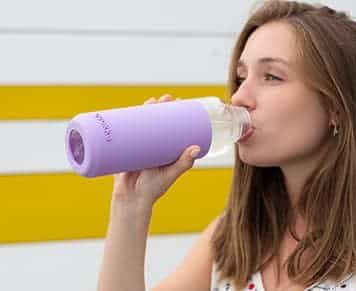
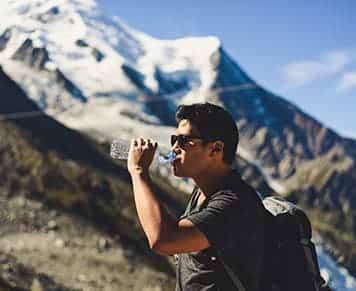
Bottled water which meets the Australian New Zealand Food Authority (ANZFA) Food Standards Code is safe to drink. Consumers who require added quality assurance should select bottled water produced by an accredited bottler like Aussie Gold Natural Spring Water.
HACCP certification is an international standard defining the requirements for the effective control of food safety. It is built around seven principles: Conduct Hazard Analysis of biological, chemical or physical food hazards. Determine critical control points.
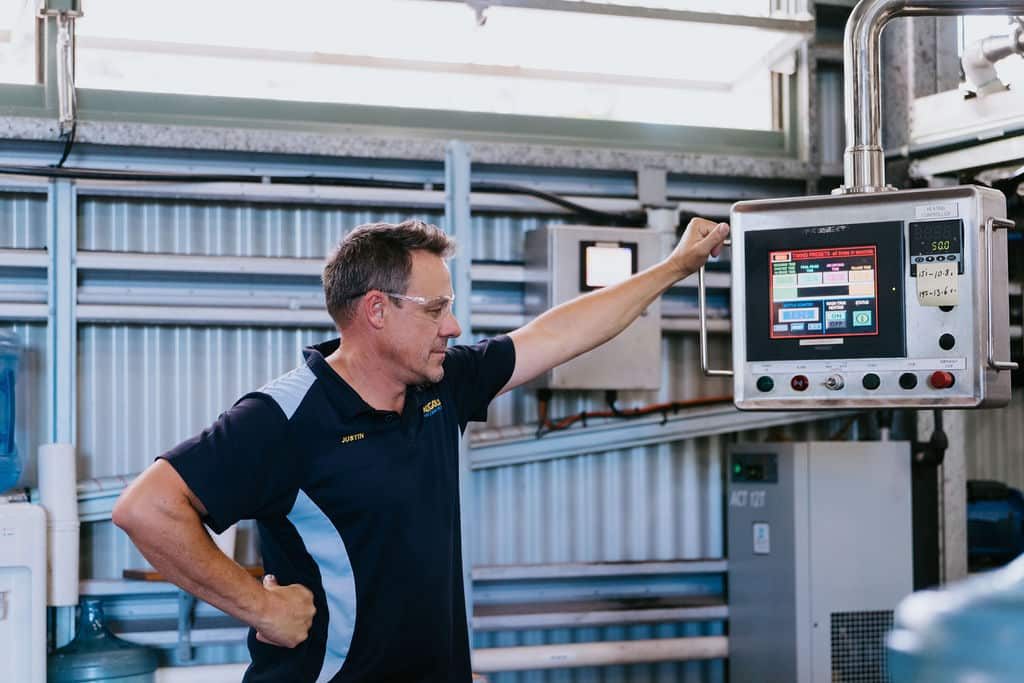
Testimonials
Monday
Tuesday
Wednesday
Thursday
Friday
Saturday
Sunday
8:30am – 4:30pm
8:30am – 4:30pm
8:30am – 4:30pm
8:30am – 4:30pm
8:30am – 4:30pm
Closed
Closed